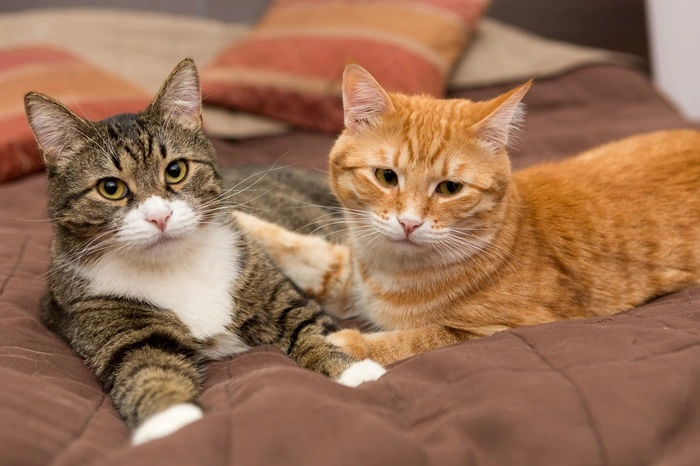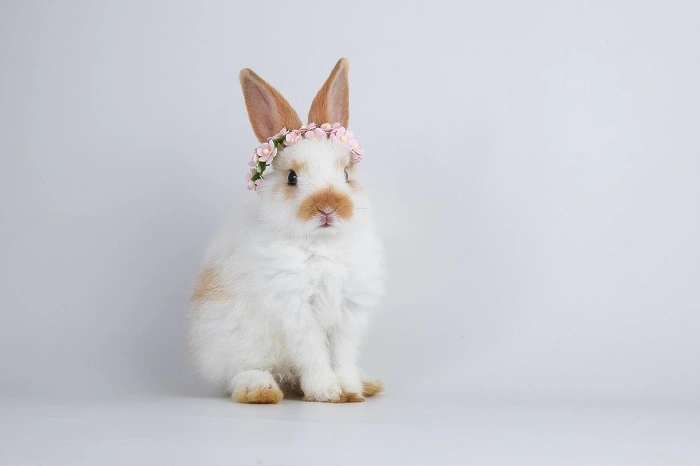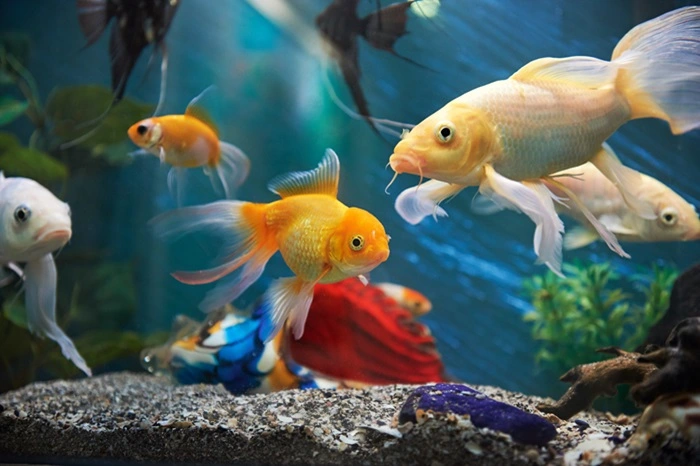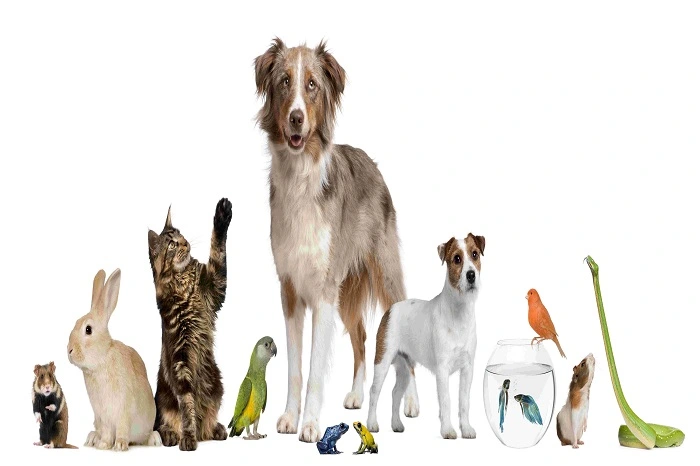1. Cats
Where Dreams Come True for Cats Enthusiasts
2. Dogs
Discover the Uncommon Bond Between Humans and Dogs
3. Turtles
Ideal options for a long-lasting pet friend
4. Rabbits
Come for The Rabbits, Stay For The Cuddles
5. Fish
It is ideal for Apartment living where noise can be a concern.
It's fair to say that people adore their furry friends, whether they have two legs, four legs, or none at all. A pet is a friend. According to the National Pet Owners Survey, 67% of US households, or 85 million families, had a pet, an increase from 56% in 1988.
This covers everything, from common pets like dogs and cats to more unusual ones like fish and turtles.
The goal of having a loving pet by your side is realistic, no matter how long you've been renting or how new to flat living you are. However, not every pet is a good fit for an apartment. For this reason, we've put together a list of the top 5pets for apartment owners. They give renters the ideal balance of personality, company, and flexibility.
Low Maintenance Pets for Apartments
1. Cats
Where Dreams Come True for Cats Enthusiasts

Cats make excellent pets for apartments and other rental spaces due to their low-care needs. They are known for their independence, particularly when it comes to walking and other activities. Depending on their size, they may even consume less food and water.
Cats are good apartment pets that are cuddly. You don't need to do much to keep cats entertained, as they sleep for an average of 15 hours daily.
Additionally, because cats are often quiet pets, renters won't have to worry as much about any noise complaints. Although cats tend to scratch, you can reduce the chance that they will harm your flat or furniture by giving them toys to keep their minds active and clipping their nails.
Cats that are small in size and good for apartments:
- Munchkin cat
- Singapura
- American Curl
- Siamese
- LaPerm
These small size cats are bestfor small houses or apartments. These tiny cat species have a lot of personality inside despite their tiny appearance.
Pros:
- Cats are typically a good fit for apartment living because they don't require a lot of space.
- Cats are friendly and offer company without requiring constant care.
- Cats can help keep pests out of your apartment because they have natural hunting abilities.
Cons:
- The litter box will require regular cleaning.
- Some people may have respiratory problems and pain as a result of cat allergies.
- Cats can contain allergens in their fur, even if you are not allergic to them.
2. Dogs
Discover the Uncommon Bond Between Humans and Dogs

Dogs are great apartment companions, but you must ensure the breed suits your living area. You might choose a smaller dog if you rent a studio or one-bedroom flat instead ofa larger one. The floor you live on could also affect your decision. Living on the ground floor makes walking your dog easier and takingtoilet breaks.
For those who enjoy being outside,dogs make the perfect pets. This includes having someone to go for neighbourhood walks or runs with and having a partner for outdoor activities like hiking.
It's important to be aware of any breed limitations included in your rental agreement and any extra insurance or security deposit requirements that may apply to rentals with dogs.
The best dogs for apartments are:
- Pomeranian
- Chihuahua
- Maltese
- Shih Tzu
- Bichon Frise
These dog breeds suit your walk-up apartment with one or two bedrooms. Even huge breeds like greyhounds and Great-denses can adjust well to apartment living; however,they will still need to go outdoors regularly during the day to get some fresh air.
Pros:
- Dogs make excellent watchdogs because they can alert you of any suspicious activities.
- Dogs are famous for their love and loyalty, which helps with emotional support.
- Having a dog can help create and sustaina daily schedule.
Cons:
- Dogs need to exercise regularly.
- Barking can be annoying for neighbours.
- Food, veterinarian care, grooming, andpet insurance costs are all linked with owning a dog.
3. Turtles
Ideal options for a long-lasting pet friend

Turtles are an excellent choice for a faithful companion. Although many people believe that turtles are low-maintenance pets, they actually need specialized care that must be given regularly. When completely mature, some turtles can reach a length of one foot and live for decades. Thisis something to consider while getting turtles.
Each species, such as the wood and painted turtles, has a unique personality and appearance. They can't do any damage and spend muchtime in their tanks.
Additionally, turtles need specialized care equipment, such as temperature control systems, lights, and water filters.
A turtle's best feature is that it never barks, meows, squeaks, or squawks. They are completely silent. They move very slowly, so it's unlikely they'll get far from you, even in the unusual event that they escape from their cage.
Some turtles that stay small:
- Tortoise
- Common musk Turtles
- Map Turtles
- Spotted Turtles
- Mud Turtles
You can choose among thesebreeds of constantly tiny turtles that nature has offered for your tiny houses orapartments.
Pros:
- Turtle care is quite easy.
- People are less likely to get allergies from turtles.
- Turtles are generally peaceful creatures that don't make loud noises.
Cons:
- For the health of the turtles in a tank or pond, the water's quality must be maintained.
- For a turtle to thrive, its tank enclosure must be the correct size.
- It might be costly to set up an appropriate enclosure for turtles.
4. Rabbits
Come for The Rabbits, Stay For The Cuddles

Rabbits are a good choice for apartment living due to their litter-box training. They are small, social, and friendly. The coolest part about them is the ability to train them. Like cats, rabbits can groom themselves and be trained to use a litter box.
Make sure you schedule time weeklyto clean their living space, as they can have a musty smell. While many people also allow their rabbits torun about their apartments, it's important to first rabbit-proof your living area.
Compared to other pets, rabbits are often calm creatures and less likely to annoy their neighbours. They are the best small pets for cuddling.
Since rabbits enjoy playing, they require a lot of toys. They need something to chew on constantly since their teeth never stop growing. Giving them a few chew toys is also a good idea, even though hay is the most excellent choice for their teeth.
Best Rabbit breeds for apartments:
- Lionhead Rabbit
- Mini Lop
- Polish Rabbit
- Dwarf Hotot
- Dutch Rabbit
These breeds of rabbits are the greatest if you're searching for a cuddly and incredibly adorable pet to live with you in your apartment.
Pros:
- They are hygienic by nature and are trainable to use litter.
- Rabbits are loving animals that like interacting with people.
- People are less likely to develop allergies from rabbits.
Cons:
- Their litter boxes require regular cleaning.
- Due to their natural ability to chew, rabbits may cause damage to furniture.
- It can be challenging to keep a rabbit's diet balanced.
5. Fish
It is ideal for Apartment living where noise can be a concern.

Renters also frequently choose to bring fish as pets. Smaller aquariums, such as those that hold five gallons or less, are convenient to set up in your apartment, maybe on top of an end table or TV stand. Even though they aren't as communicative as many pets, they might make you feel less alone and more at ease in your apartment.
While feeding them is relatively easy, caring for their surroundings might be more challenging. The amount of work required each week to maintain water quality and keep tanks clean adds up.
Small rooms can fit tanks that hold 5 gallons or less, but you might need a larger tank if you have multiple species. While beta fish prefer to live alone, some species, like tetras and guppies, appreciate living with other fish.
Your aquarium may reflect your personality,whether freshwater or saltwater or whether you employ genuine or artificial plants. Making a fantastic statement piece in your apartment can take uplittle room.
Some of the best fish species for apartments:
- Standard goldfish
- Mollies and Platies
- Betta fish
- Neon Tetras
- Zebrafish
Pros:
- Fish require less care than other animals.
- Because they are quiet pets, fish are perfect for apartment living.
- Fish tanks can be aesthetically pleasing and a lovely, soothing addition.
Cons:
- Fish do not offer the same interactive connection as dogs or cats.
- It's crucial to do routine water testing, filter cleaning, and water changes.
- A fish tank's setup might be costly.
Pay Rent for Pet
If you are thinking about getting a pet but don't currently have one, it's best to discuss your choices with the apartment's rental managementfirst to learn about their policies. It is advisable to have an open discussion because some areas may restrictthe kind, size, or breed of pets you cancarry.
You have to pay rent for some pets. At our complex, some pets are free from paying a pet charge. These pets include small birds, hamsters, turtles, guinea pigs, and fish aquariums that hold five gallons or less.
Why?
Most apartment buildings charge a monthly pet fee to ensure that any damage your pet may have caused may be fixed when you move out. The pet charge pays for the carpet cleaning, air duct cleaning, and fixing broken or chewed-up apartment fixtures.
How much?
Enquiring in advance is crucial because pet rent changes from house to property. Also, ifyou move apartments within the same complex, pet rent may not always change from apartment to apartment.
This is due to a few factors, one of which is that, in order to prepare a flat for new renters, each one needs to be specially cleaned when a renter with a pet moves out.
4 Factors to Consider When Choosing a Pet
- Your Space
Among all animals' needs, space is one of the most important. Before bringing your pet home, make sure you have the room or access your pet needs to be happy. If you're thinking of getting a tiny pet, like a rabbit, make sure you have enough space for the animal's cage and any extra stuff.
Animals require space. To help you maintain your pet's happiness and stress-free lifestyle, select one that is appropriate for your available space.
- Financial Situation
The first thing you should think about is your budget. You should be aware of the costs that come with owning a pet to make sure you can support your friend for the rest of their life. Take a look at your one-time expenses first.
Adoption, city registration, and similar expenses are examples of these expenses. You should also budget for annual costs for things like cleaning, food, toys, and veterinary care. Your selection of pets will determine how much these costs will be.
- Your Personality
Selecting an animal companion includes choosing an animal that represents your character. Take some time to think about how the animal might behave with you while selecting the perfect pet for you. The next thing to decide is if you want to buy or adopt.
Each has advantages, so weigh the advantages and disadvantages to choose which is ideal for you. When choosing a pet, remember to consider its age and past.
- Age of Pet
Raising a dog or cat from an early age can be enjoyable, but caring for puppies and kittens requires a lot of work. When thosecute little facesare staring back at you, a few things to consider include toilet or litter training and the possibility that they can sometimes destroy items like shoes and furniture.
Adopting an adult or senior animal might be a great way to add a seasoned family member to your group if you're searching for a relaxed companion.
Frequently Asked Questions:
Q. What pets are suitable for flats?
Cats, Rabbits, Turtles, Fish and animals that are small in size are best for flats.
Q. What are the best small pets for anxiety?
Rabbits, guinea pigs, and birds are among the most anxiety-reducing small pets. These creatures improve self-esteem, control heart rate, lower blood pressure, and occupy the mind.
Q. What are the 3 most popular pets?
The three most popular pets in the U.S. are Cats (65.1 million households), Dogs (46.5 million households), and Freshwater fish (11.1 million households).






